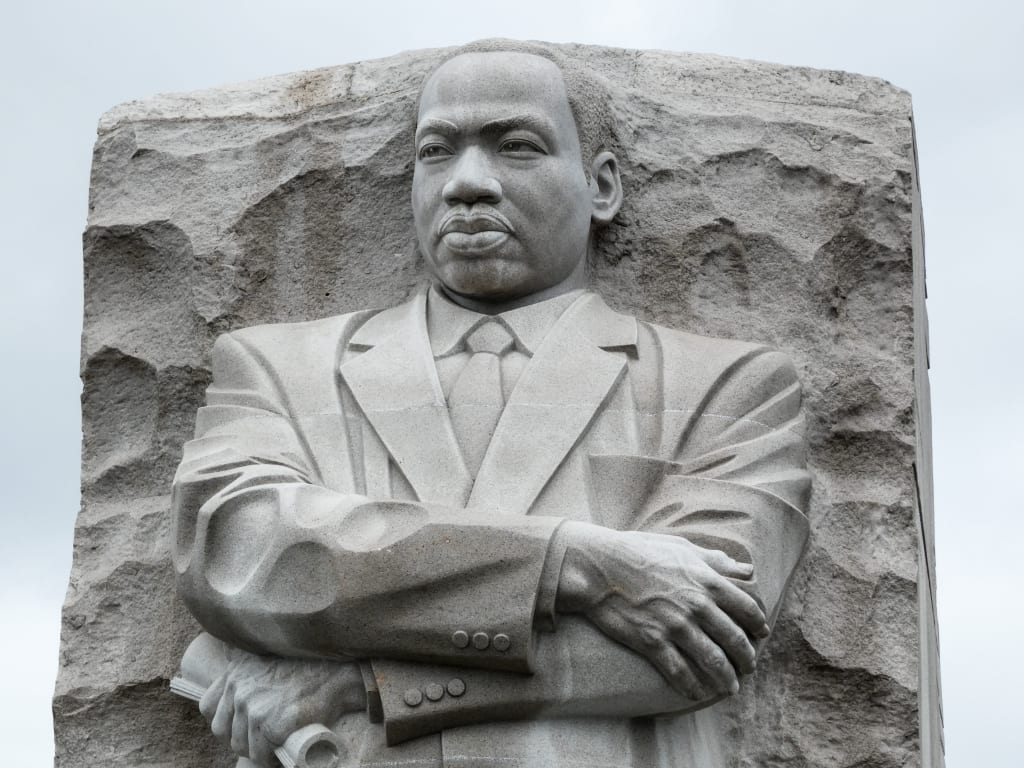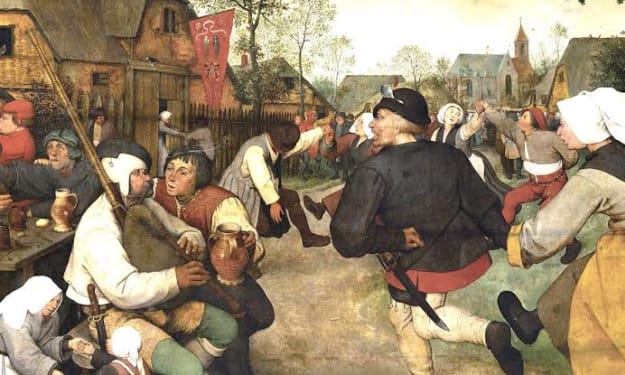"Martin Luther King Jr.: Architect of Equality and Justice
"A Comprehensive Exploration of His Leadership, Achievements, and Lasting Impact on the Civil Rights Movement"

Martin Luther King Jr. was a towering figure in the American civil rights movement, a beacon of hope and a tireless advocate for racial equality, justice, and social change. His achievements are deeply woven into the fabric of American history, leaving an indelible mark on the nation and inspiring movements for justice worldwide. In exploring the achievements of Martin Luther King Jr., one must delve into his leadership, pivotal moments, and the lasting impact of his advocacy.
**Leadership in the Civil Rights Movement:**
At the core of Martin Luther King Jr.'s achievements is his pivotal role in the American civil rights movement. His leadership was instrumental in galvanizing African Americans and supporters of civil rights in their quest to dismantle racial segregation and discrimination. His ability to articulate a vision of equality and justice, coupled with his commitment to nonviolent protest, set him apart as a beacon of hope for those advocating for change.
**Montgomery Bus Boycott (1955-1956):**
King's journey to national prominence began with the Montgomery Bus Boycott, a protest against racial segregation in public transportation in Montgomery, Alabama. Sparked by Rosa Parks' refusal to give up her bus seat, King emerged as a leader, guiding the African American community through a 381-day boycott. The boycott resulted in a Supreme Court ruling declaring segregation on public buses unconstitutional, marking a significant victory for the civil rights movement.
**Southern Christian Leadership Conference (SCLC):**
In 1957, Martin Luther King Jr. and other civil rights leaders founded the Southern Christian Leadership Conference (SCLC). This organization became a cornerstone in the fight for civil rights, focusing on nonviolent protests, advocacy, and direct action. Under King's leadership, the SCLC played a crucial role in many pivotal moments of the civil rights era.
**Role in the Birmingham Campaign (1963):**
King's leadership took center stage during the Birmingham Campaign in 1963, a series of protests against racial segregation in Birmingham, Alabama. The campaign drew national attention as images of police brutality against peaceful demonstrators, including children, shocked the nation. King's "Letter from Birmingham Jail," a response to clergy critical of the protests, became a powerful document advocating for nonviolent resistance and justice.
**March on Washington for Jobs and Freedom (1963):**
Undoubtedly one of the most iconic moments in American history was the March on Washington for Jobs and Freedom on August 28, 1963. King's leadership was pivotal in organizing this massive demonstration, where he delivered his famous "I Have a Dream" speech at the Lincoln Memorial. The march attracted over 250,000 participants and remains a watershed moment in the civil rights movement, symbolizing unity and a collective demand for equality.
**Civil Rights Act of 1964:**
King's influence extended beyond activism to legislative achievements. The Civil Rights Act of 1964, a landmark piece of legislation, aimed to end segregation in public places and banned employment discrimination on the basis of race, color, religion, sex, or national origin. King's tireless advocacy and the collective efforts of the civil rights movement contributed significantly to the passage of this historic act.
**Nobel Peace Prize (1964):**
In recognition of his nonviolent struggle for civil rights, Martin Luther King Jr. was awarded the Nobel Peace Prize in 1964. At the age of 35, he became the youngest recipient of this prestigious award. The Nobel Committee acknowledged his leadership and commitment to achieving racial equality through peaceful means.
**Voting Rights Act of 1965:**
Another crowning achievement of the civil rights movement, influenced by King's leadership, was the Voting Rights Act of 1965. This transformative legislation aimed to overcome legal barriers at the state and local levels that prevented African Americans from exercising their right to vote as guaranteed by the 15th Amendment to the U.S. Constitution.
**Legacy and Continued Impact:**
Beyond his immediate achievements, Martin Luther King Jr.'s legacy endures as a beacon of inspiration for subsequent generations. His principles of nonviolent resistance, equality, and justice continue to resonate globally, influencing movements for civil rights, social justice, and equality around the world. The Martin Luther King Jr. National Historic Site in Atlanta, Georgia, and the annual Martin Luther King Jr. Day serve as reminders of his enduring impact and the ongoing pursuit of his dream.
In conclusion, Martin Luther King Jr.'s achievements are multifaceted and profound. From his leadership in key moments of the civil rights movement to legislative victories and his enduring legacy, King's contributions to American society and the global struggle for justice are immeasurable. His life and work serve as a testament to the power of conviction, moral courage, and the unwavering pursuit of a more just and equitable world.





Comments
There are no comments for this story
Be the first to respond and start the conversation.